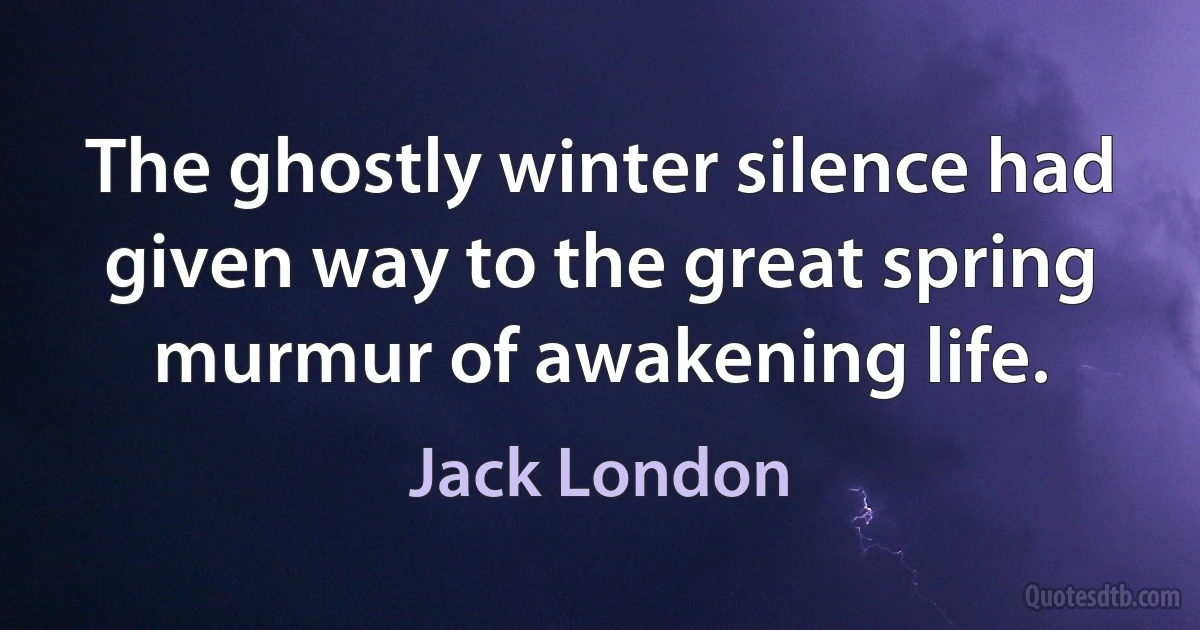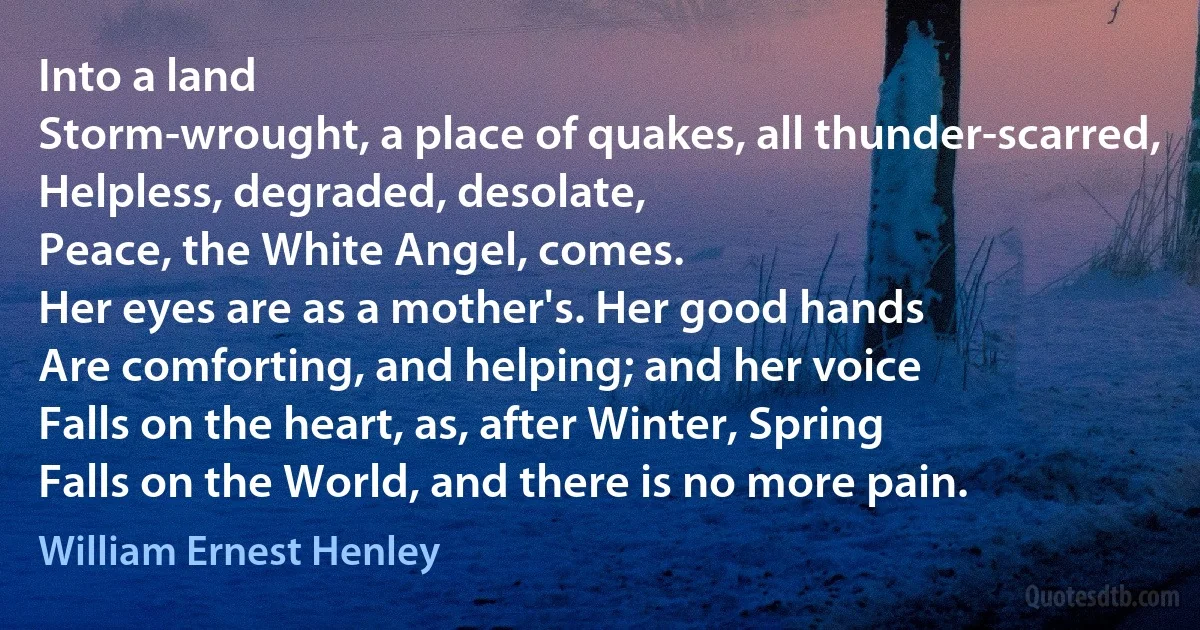Winter Quotes - page 15
At first they set up forked stakes connected by twigs and covered these walls with mud. Others made walls of lumps of dried mud, covering them with reeds and leaves to keep out the rain and the heat. Finding that such roofs could not stand the rain during the storms of winter, they built them with peaks daubed with mud, the roofs sloping and projecting so as to carry off the rain water.

Vitruvius
Be reverent before the dawning day. Do not think of what will be in a year, or in ten years. Think of to-day. Leave your theories. All theories, you see, even those of virtue, are bad, foolish, mischievous. Do not abuse life. Live in to-day. Be reverent towards each day. Love it, respect it, do not sully it, do not hinder it from coming to flower. Love it even when it is gray and sad like to-day. Do not be anxious. See. It is winter now. Everything is asleep. The good earth will awake again. You have only to be good and patient like the earth. Be reverent. Wait. If you are good, all will go well. If you are not, if you are weak, if you do not succeed, well, you must be happy in that. No doubt it is the best you can do. So, then, why will? Why be angry because of what you cannot do? We all have to do what we can.... Als ich kann.

Romain Rolland
Eastern Prussia was a battlefield during World War I years. And right from here, on September 1, 1939, began the spark of fire for the coming of the second world war. And in 1941, Eastern Prussia invaded Soviet soil with a powerful military onslaught, unleashing a grip of heavy burden, tragedy, and torture into the Soviet pre-Baltic and also the inhabitants of Leningrad, Pskov, and the Novgorod regions. Right from the very first days of the second world war, Eastern Prussia was completely transformed into a diabolic system of concentration camp strongholds for captured military people, and became a cruel prison for the young and females, who were brought from many European countries. In the first place, from the Soviet Union. And, aha! Now, after the winter of 1945, Soviet forces captured the descendants of these royal hounds in their very own doghouse!

Hovhannes Bagramyan
It had been the winter of 1835-6 that the ship, Alert, in her voyage for hides on the remote and almost unknown coast of California, floated into the vast solitude of the bay of San Francisco. All around was the stillness of nature. One vessel, a Russian, lay at anchor there, but during our whole stay not a sail came or went. Our trade was with remote missions, which sent hides to us in launches manned by their Indians... Over a region far beyond our sight there was no other human habitations, expect that an enterprising Yankee, years in advance of his time, had put up, on the rising ground above the landing, a shanty of rough boards, where he carried on a very small retail trade between the hide ships and the Indians. On the evening of Saturday, the thirteenth of August, 1859 (I again sailed into) the entrance to San Francisco, (now) the great center of worldwide commerce.

Richard Henry Dana, Jr.
Nature appears to us in four seasons. The spring is bright and warm, the summer lazy and hot. The fall is decked with colour with a trace of sadness, and the winter frosted and severe. Similarly, the movement of shin shin toitsu aikido are rich and varied. There is both severity and kindness, speed and calmness. It is designed to express the many moods and characteristics of men and women, young and old. But if it for one moment varies from the principles of the universe, it is no longer aikido with ki.

Koichi Tohei
.. As a matter of fact, last winter I was painting on ivory; I've already got a collection of forty studies, but these are original miniatures, of a kind I've never seen before, entirely done with the point of a brush, with details that are closer to the brushwork of Velásquez than to that of Mengs.

Francisco Goya
Everybody skated and played hockey. When I was five, Dad gave me a heavy box for Christmas. When I opened it, there was only a piece of wood. I was so mad! Then he gave me another box, and the skates were there. Dad used to build a rink behind our house every winter. That's where I started playing hockey. From the time I was seven, I used to sleep in all my equipment. That way, I was ready to play in the morning.

Guy Lafleur
In the fall, acorns, filberts, and hickory nuts are gathered by wildlife as winter stores. Field and pack rats bring in smaller seed such as wild rice from the marshes. If storages are provided, these foragers will fill hollow pipes or logs, or smaller pipes, old vehicle engine manifolds, and nest boxes or wall cavities. Seed so collected is sound, clean, and neatly stored. Providing some 15% is left, and given over to winter food for these workers, 85% can be collected for human use. A few people regularly collect their hickory nuts or wild rice in this way, by providing dens for squirrels or pack rats. It is a question of cooperation and provision for others, instead of attempting to kill off the experts and do the job yourself.

Bill Mollison
My dear Theo, Sincere wishes for your good health and serenity on your birthday. I would like to have sent you the painting of the potato eaters for this day, but although it's coming along well, it's not quite finished yet. Although I'll have painted the actual painting in a relatively short time, and largely from memory, it's taken a whole winter of painting studies of heads and hands. And as for the few days in which I've painted it now - it's consequently been a formidable fight, but one for which I have great enthusiasm. Although at times I feared that it wouldn't come off. But painting is also 'act and create.

Vincent van Gogh
To paint an autumn landscape I will not try to remember what colors suit this season, I will only be inspired by the sensation that the season gives me; the icy clearness of the sour blue sky will express the season just as well as the tonalities of the leaves. My sensation itself may vary, the autumn may be soft and warm like a protracted summer or quite cool with a cold sky and lemon yellow trees that give a chilly impression and announce winter.

Henri Matisse



